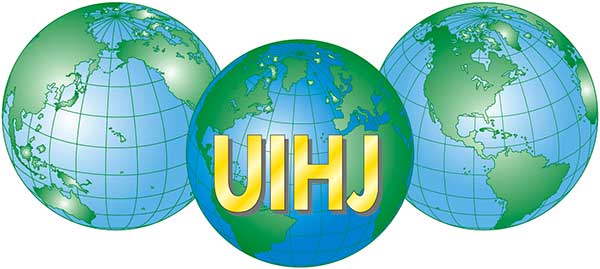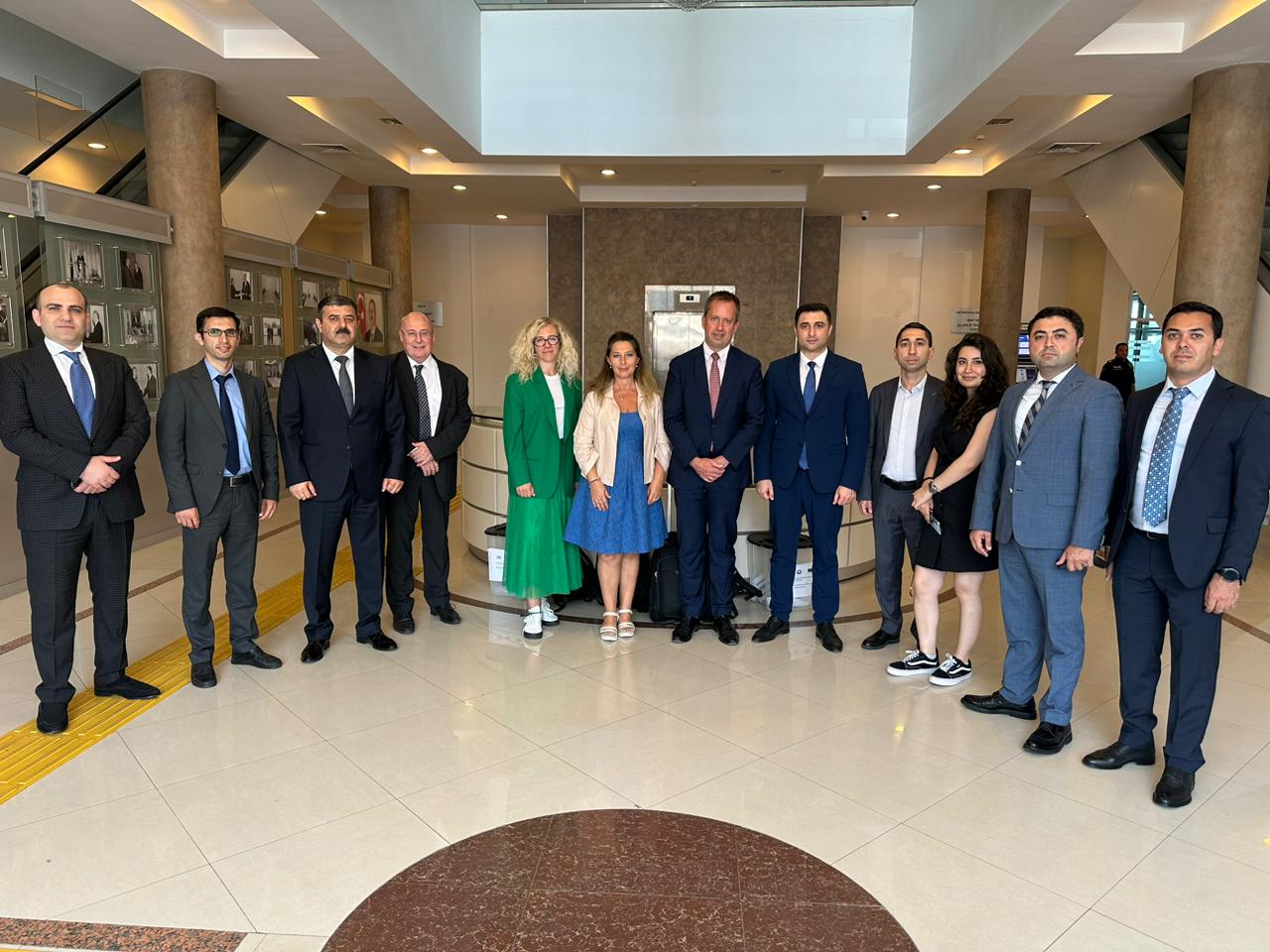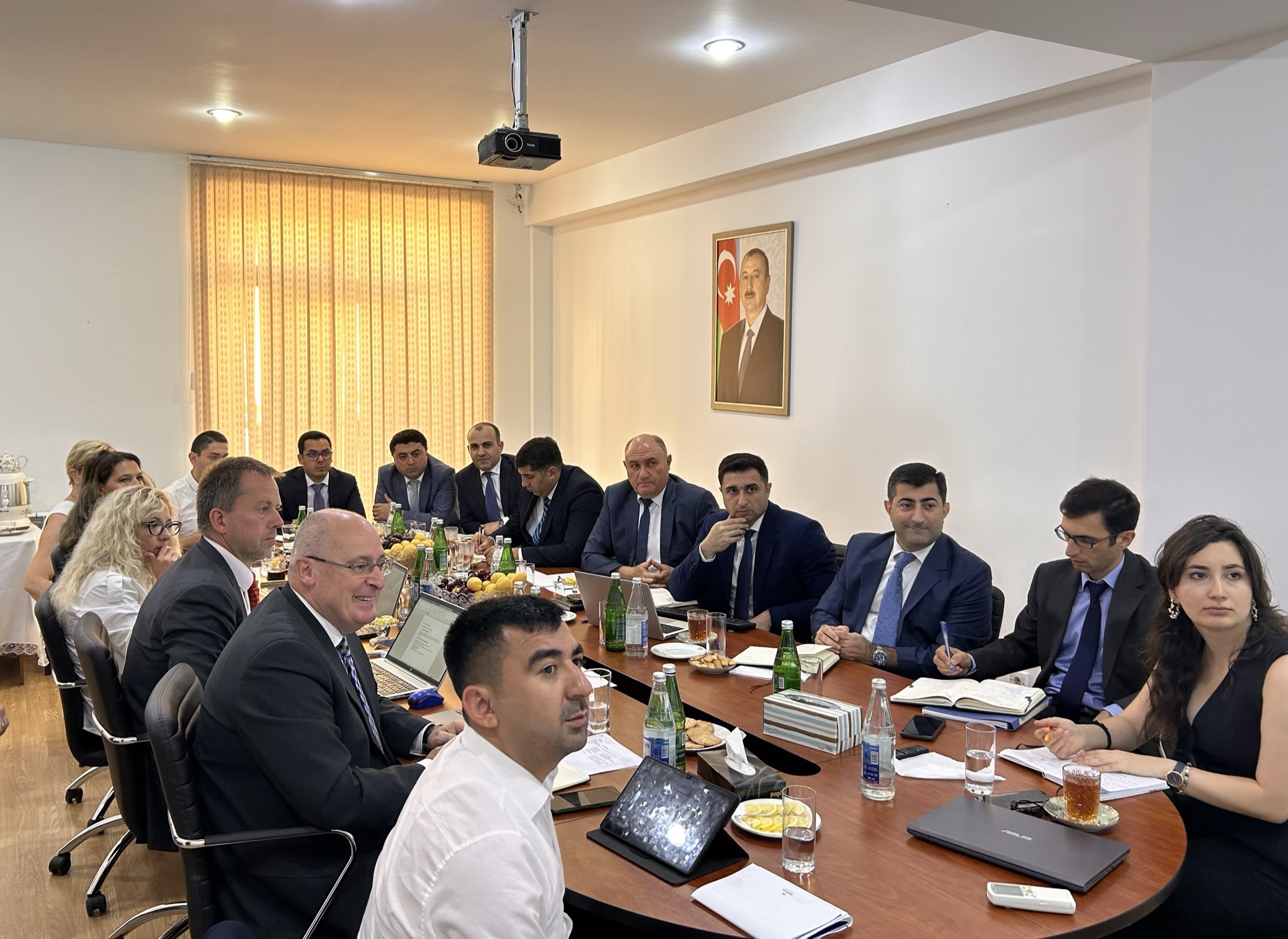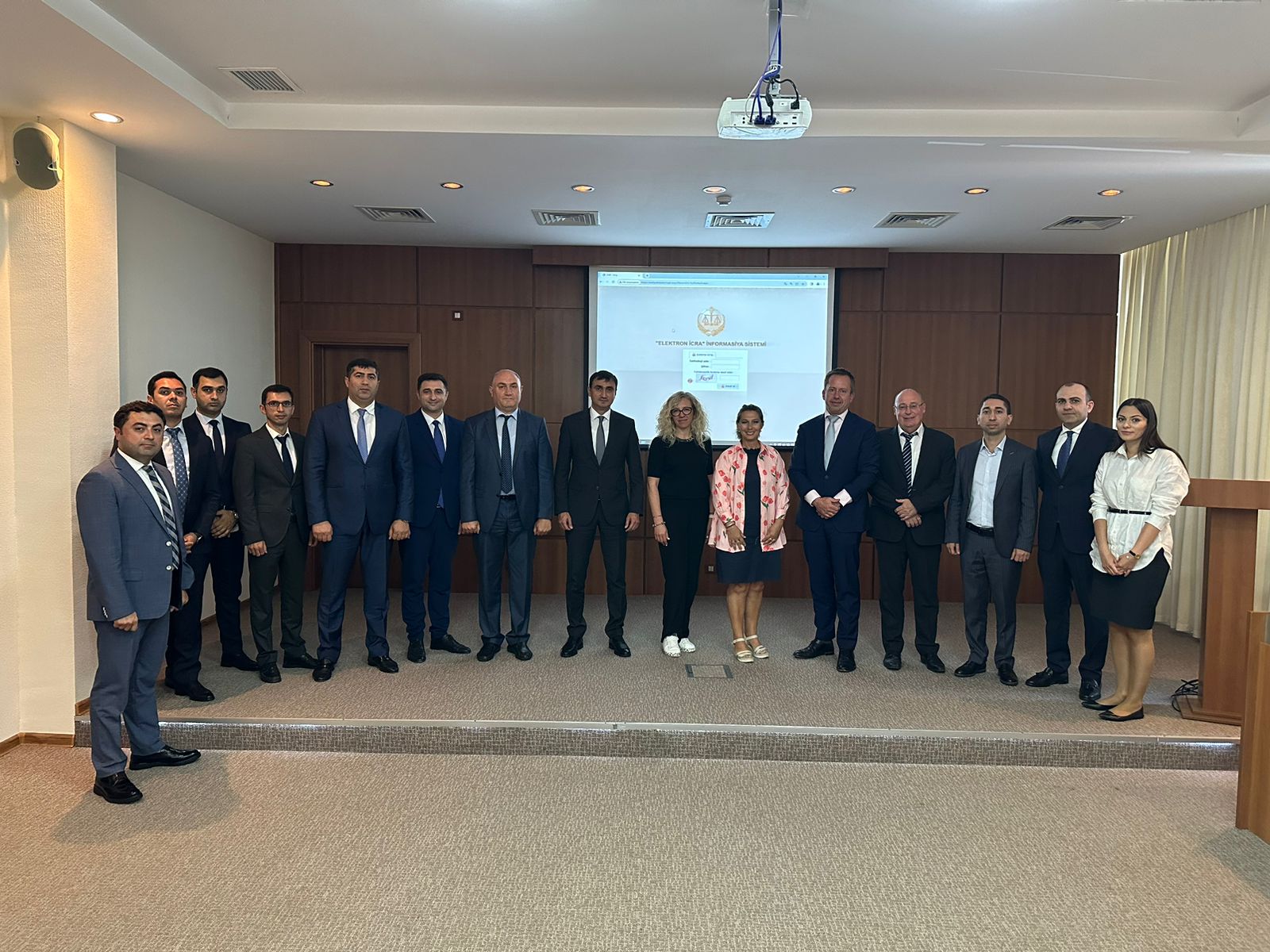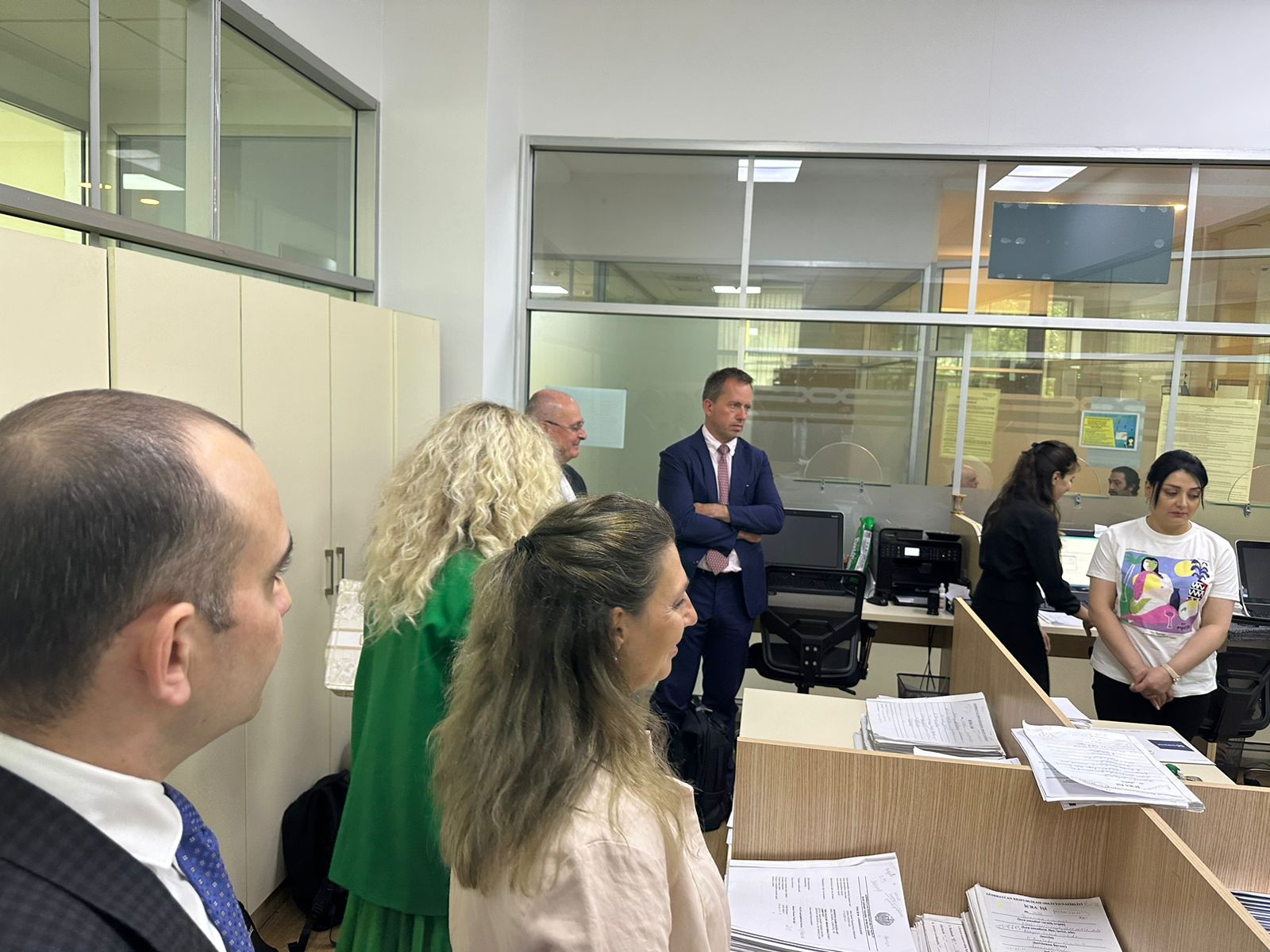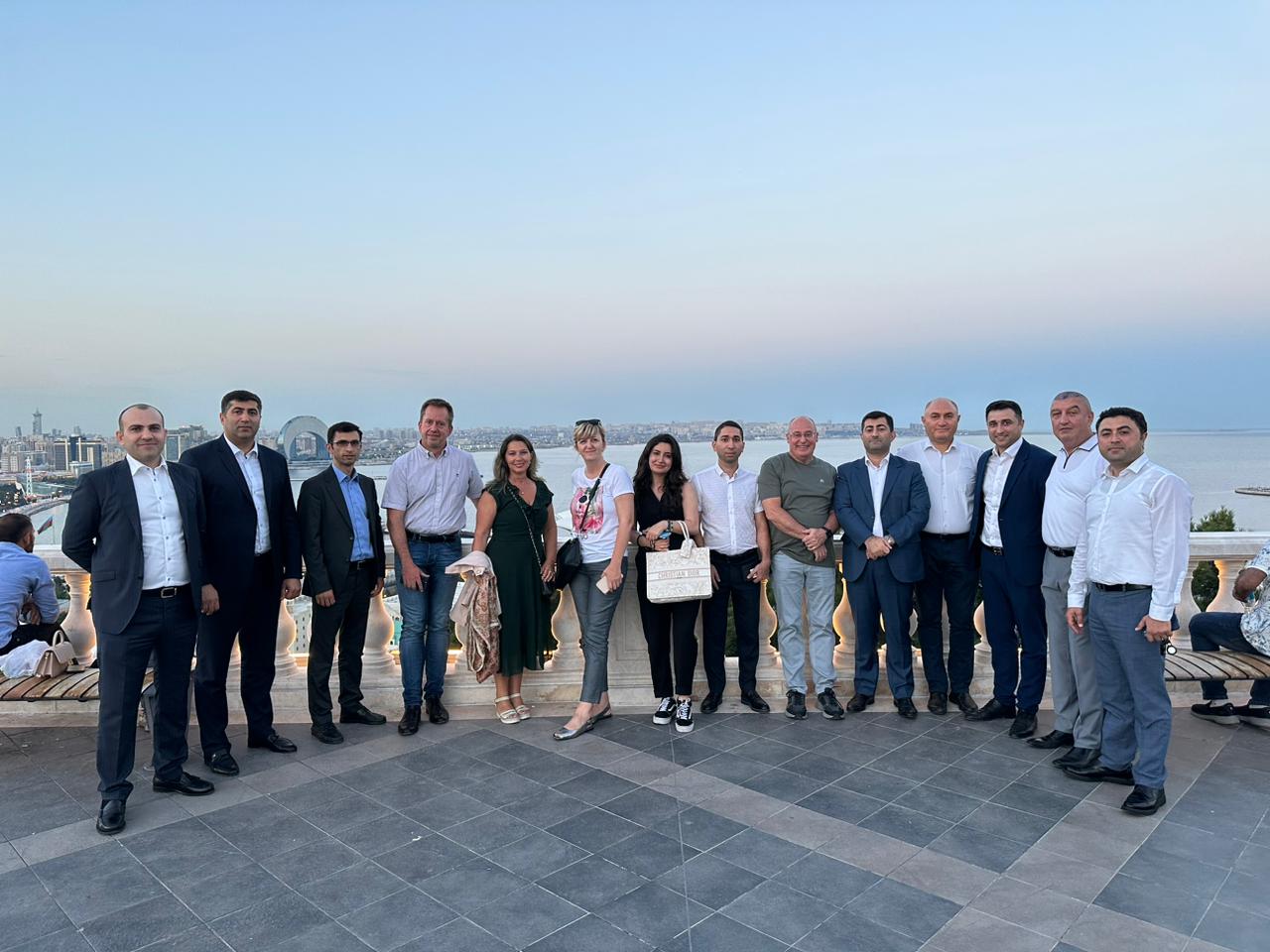Jos Uitdehaag, 1st Vice President of the UIHJ, and Patrick Gielen, Secretary of the board, recently went on a visit to Baku, Azerbaijan, from July 3rd to July 7th 2023. Their mission was an integral part of two ambitious projects: the World Bank’s “Piloting of Private Bailiff Offices” and the EBRD’s “Strengthening the Capacity of the Enforcement Service – Legislative and Institutional Analysis.” This visit aimed to foster collaboration and share expertise in the field of enforcement services.
Jos Uitdehaag led the expert group. It was made up of a number of professionals who brought diverse skills and experience to the table. Samir Osmanli, a local legal expert, offered valuable insights into the regional legal landscape. Aira Strimaitienè, digital transformation expert, shared her expertise in leveraging technology to enhance enforcement services. Marina Naumovska-Milevska, training expert, shed light on the importance of continuous professional development. Zlatislava Mihailova, project manager and expert in change management, gave her experience in successfully implementing transformative initiatives. Lastly, Patrick Gielen, expert in management and development of tariff systems, provided his valuable insights on optimizing operational efficiency.
Throughout their visit, the expert group engaged in productive discussions with representatives of the Ministry of Justice, represented by Tural Mammadov. The week’s program covers various important aspects of control services.
On the afternoon of July 3rd, the group visited the Justice Academy. There, they delved into detailed discussions regarding the adaptation of training programs for the establishment of private enforcement agents offices. The need for initial and ongoing training was underlined, emphasizing the importance of keeping law enforcement professionals well equipped with the latest knowledge and skills.
The morning of July 4th was dedicated to an online meeting with Aidos Imanbayev, President of the Republican Chamber of Private Judicial Officers of the Republic of Kazakhstan. Aidos Imanbayev presented the national system, which has been operational for over a decade. The previous system was fraught with corruption – should we write that? I suggest: faced various issues and challenges of underpaid employees leaving the profession. To overcome these hurdles, Kazakhstan made significant systemic changes. The advantages of the private system were clearly highlighted, emphasizing the importance of transparency and professionalism. Enforcement agents pay a standard contribution for the functioning of the national and regional chambers, ensuring equitable participation. This presentation was an invaluable source of inspiration for the visiting experts.
In the afternoon of July 4th, the expert group engaged in an in-depth review of the draft law that aimed to implement private enforcement agents in Azerbaijan. Detailed discussions were held on various aspects, including the need for comprehensive training programs, the establishment of professional standards, and the essential control and supervision mechanisms to ensure the highest level of professionalism in the field.
On the morning of July 5th, the expert group had a fruitful meeting with Huseyn Mammadov, the President of the Notary Chamber of Azerbaijan, and a special notary from the “ASAN service” center No. 2 in Baku. The focus of the discussion was to gather insights into the experiences of the notarial profession in Azerbaijan. The establishment of the Notary Chamber in 2019 marked an important step in the evolution of the system, with ongoing training, international collaboration, and the exchange of best practices being key priorities. The importance of implementing mandatory training programs and learning from international experiences was highlighted, emphasizing the value of collaboration in advancing the notarial profession.
In the afternoon of July 5th, the group had the opportunity to visit a court and observe the state enforcement system in action. The chair of the state enforcement agent provided a comprehensive overview of the journey of judicial decisions, from the moment they are rendered by the judge to their enforcement by state enforcement agents. This firsthand experience shed light on the practical aspects of the enforcement process, offering valuable insights for the ongoing projects.
On the morning of July 6th, discussions focused on the IT aspects of the proposed private enforcement agent profession in Azerbaijan. Given the coexistence of the established system for state enforcement agents, it was essential to address the compatibility and integration of the new digital tools. They presented their electronic execution system, displaying its benefits and how it could complement the existing framework.
The afternoon of July 6th witnessed intense discussions surrounding the territorial area of private enforcement agents and the provisions related to applicable fees. Various aspects, including execution costs, fees, and performance-based remuneration, were thoroughly analyzed. Despite the intensity of the discussions, a cordial and constructive atmosphere prevailed, reflecting the commitment of all parties involved to find the most effective solutions.
The visit to Baku highlighted the immense potential for improving the enforcement services in Azerbaijan through the establishment of private enforcement agents. The expertise and knowledge shared during the visit have set the project on a promising path toward enhancing the efficiency and effectiveness of the enforcement system. The commitment to progress was evident as a follow-up meeting has already been scheduled for September 2023, ensuring continuity and further advancement of the projects.
In conclusion, the visit to Baku marked an important milestone in the collaboration between international experts and the Azerbaijani Ministry of Justice. The exchange of experiences, insights, and best practices has paved the way for a brighter future for the enforcement services in Azerbaijan, ultimately benefiting the justice system and society as a whole.
Jos Uitdehaag had the opportunity to hand over to the Director of the Technology and Innovation Department of the Ministry of Justice of the Republic of Azerbaijan, Mr. Aghakarim Samad-zade, a copy of the Global Code of Digital Enforcement, which will undoubtedly be an important instrument in the reform of the enforcement agent profession.
The next mission to Azerbaijan is planned in September 2023.
